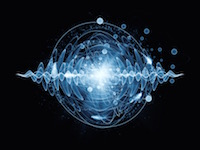
- Speaker: Prof. Kim, Jehyung
- Date: Thursday December 13, 2018 04:00pm
- Place: 울산과학기술원 자연과학관 (108동) 세미나실 (401호)
An exciton, a bound state of an electron and an hole, is a very useful quasiparticle in semiconductor. These electron-hole pairs form a wavefunction akin to that of a hydrogen atom and effectively interact with photons with a strong oscillator strength. In particular when they are confined in small-sized nanostructures, it is possible to mimic the trapped single atoms, and therefore the single exciton is able to generate single photons (photonic qubits). The addition of single electron or hole to the single exciton forms a charged exciton, which is a source of spin qubits. Furthermore, the formation of bi-excitons is able to generate an entangled photon pair by cascade recombination process. Therefore, the excitons can provide a key building block for quantum information science in solid-state system. However, these artificial atoms in solid system undergo various problems due to the high refractive index of a host medium, randomness of the emitters, and strong interaction with the environment such as phonon and charge fluctuation. In this talk, I will describe recent approaches to overcome these problems and review the remained issues.
